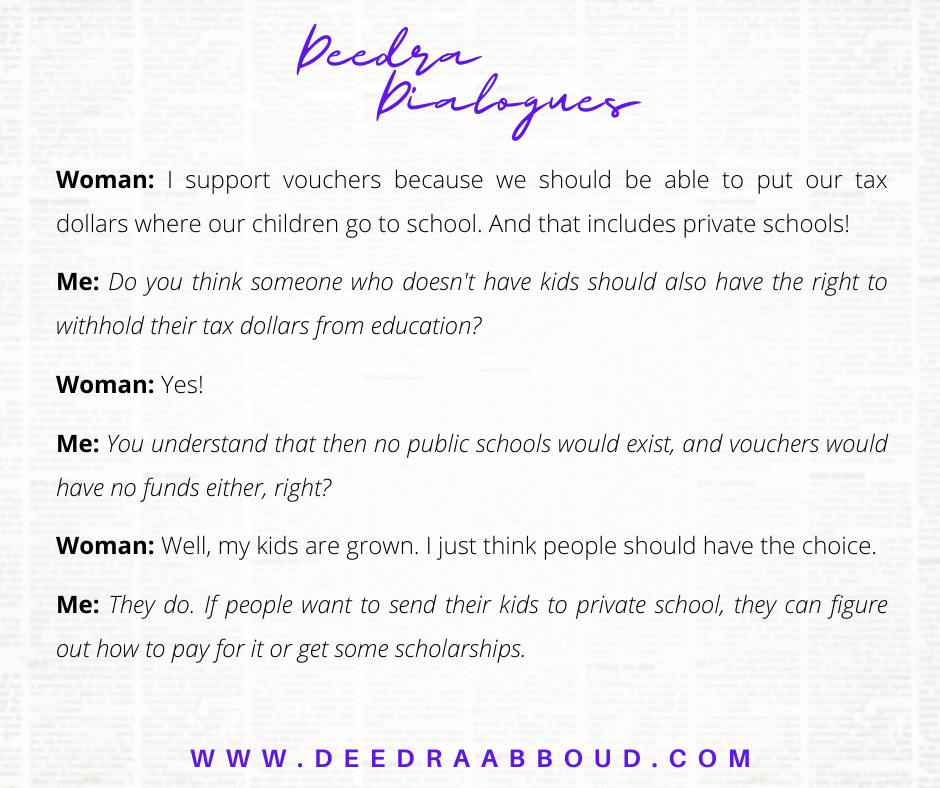
If equal and quality education was indeed the goal, why would dismantling all-inclusive public education be the solution?
The original intent of the Arizona voucher program, as envisioned by the Arizona legislature, was to direct money to private schools to cover tuition for students with special needs that were not being met by their public school.
Today, the Arizona voucher program is not limited to special needs and vouchers can be used to pay for the costs of tutors, textbooks, achievement assessments, uniforms, extracurricular activities, post-secondary education for high school graduates, and multiple other private fees.
Parents can also get paid to homeschool their kids through the tax-payer voucher program.
In Arizona, the average private school tuition is $10,251 per year (2022). The average tuition for a private elementary school is $9,756 per year, and the average tuition for a private high school is $15,165 per year.
Even when vouchers are available, many students are unable to use them because their parents cannot afford transportation, uniforms, books and fees, or tuition prices that exceed the voucher amount.
Even if families could afford the increased costs, the 451 private schools in Arizona aren’t enough to accommodate the additional 874,000 students enrolled in Arizona public schools, and many rural communities lack access to private schools at all.
While Arizona has 31 school districts that pay for public schools only through local property taxes, a student in one of these districts who transfers from a public school to a private school utilizing vouchers will increase the state cost from zero to $5,000.
Because vouchers are insufficient to cover the full cost of private school tuition per student for the 65,899 students currently enrolled, allocating vouchers for even half of Arizona’s current student population to attend newly established private schools will necessitate a tax increase on everyone.
And that’s despite the fact that Arizona vouchers give private schools more money per student than the education fund does for public schools.
In that scenario, don’t private schools become merely taxpayer-funded schools for profit with no public oversight, with owners profiting off students?
Without public scrutiny, don’t private schools become indoctrinators, or at the very least gain the opportunity and capacity to do so?
The short-term goal, rather than equal and quality education, is simply to privatize education.
The long-term goal is to create a system where those who can afford to pay for education will receive it, and receive it in the way those who own education decide it should be delivered, while those who can’t afford education are left to fend for themselves or help line the pockets of private owners.
Unfortunately, many are so focused on getting their own kids into private schools, believing that privilege will benefit their own children’s future in a Capitalist society, that they’re missing the long-term consequences to themselves and others while they’re unwittingly supporting the denial of education to future generations.